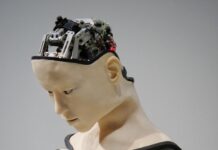In recent years, the integration of artificial intelligence (AI) into healthcare has revolutionized various medical fields, and sleep clinics are no exception. Sleep clinics, which specialize in diagnosing and treating sleep disorders, are increasingly leveraging AI technologies to enhance patient care, streamline operations, and improve outcomes. As the prevalence of sleep disorders continues to rise, understanding the role of AI in sleep clinics has become essential for both healthcare professionals and patients. This article will delve into ten game-changing facts about AI in sleep clinics, shedding light on how these innovations are transforming the way we approach sleep health.
1. Enhanced Diagnostic Accuracy
One of the most significant advancements AI brings to sleep clinics is the improvement in diagnostic accuracy. Traditional methods of diagnosing sleep disorders, such as polysomnography, can be time-consuming and subject to human error. AI algorithms can analyze sleep data more quickly and accurately, identifying patterns and anomalies that may indicate conditions like sleep apnea, insomnia, or restless legs syndrome.
By processing vast amounts of data from sleep studies, AI can assist clinicians in making more informed diagnoses, reducing the likelihood of misdiagnosis and ensuring patients receive appropriate treatment sooner.
2. Personalized Treatment Plans
AI’s ability to analyze individual patient data allows sleep clinics to develop personalized treatment plans tailored to each patient’s unique needs. Machine learning algorithms can evaluate factors such as sleep patterns, lifestyle habits, and coexisting medical conditions to recommend targeted interventions.
For instance, if a patient is struggling with insomnia, AI can suggest specific cognitive behavioral therapy techniques or lifestyle modifications based on what has worked for similar patients. This personalized approach not only enhances the effectiveness of treatments but also increases patient satisfaction and engagement in their care.
3. Real-Time Monitoring and Feedback
With the advent of wearable technology and mobile applications, AI enables sleep clinics to provide real-time monitoring and feedback to patients. Devices equipped with AI algorithms can track various sleep parameters, including duration, quality, and disturbances, and send this information to both patients and their healthcare providers.
This continuous monitoring allows for timely interventions if issues arise, ensuring that patients stay on track with their treatment plans. Additionally, real-time feedback can empower patients to make informed decisions about their sleep habits and overall health.
4. Telehealth Integration
The COVID-19 pandemic accelerated the adoption of telehealth services, and AI is playing a crucial role in enhancing these offerings within sleep clinics. AI-driven platforms can facilitate remote consultations, enabling patients to receive care from the comfort of their homes.
Telehealth integration helps to overcome barriers such as transportation difficulties and time constraints, making sleep health services more accessible to a broader audience. AI can also streamline scheduling, automate follow-up reminders, and analyze patient-reported outcomes during virtual visits.
5. Predictive Analytics for Patient Outcomes
AI’s predictive analytics capabilities can significantly impact patient outcomes in sleep clinics. By analyzing historical data and current patient information, AI algorithms can forecast potential complications or treatment failures, allowing clinicians to intervene proactively.
For example, if a patient with sleep apnea shows signs of worsening symptoms based on their data trends, the AI system can alert the clinician to adjust the treatment plan before serious issues arise. This proactive approach can enhance patient safety and improve overall treatment success.
6. Enhanced Patient Engagement
AI technologies are helping sleep clinics improve patient engagement through personalized communication and educational resources. Chatbots and virtual assistants powered by AI can provide patients with immediate answers to common questions about sleep disorders, treatment options, and lifestyle changes.
By offering 24/7 support and guidance, AI tools can enhance patient satisfaction and encourage adherence to treatment plans. Moreover, AI can analyze patient feedback and engagement metrics to help clinics refine their approaches to care and communication.
7. Research and Development
The integration of AI in sleep clinics is not just about improving current practices; it also paves the way for future research and development in sleep medicine. AI can analyze large datasets from sleep studies and clinical trials, identifying trends and correlations that may lead to new insights into sleep disorders.
This data-driven approach can facilitate the discovery of novel treatment options, improved diagnostic criteria, and a deeper understanding of the underlying mechanisms of sleep disorders. As a result, AI is helping to advance the field of sleep medicine and enhance the quality of care for patients.
8. Operational Efficiency
AI can significantly improve operational efficiency within sleep clinics by automating administrative tasks and streamlining workflows. From scheduling appointments to managing billing and insurance claims, AI technologies can reduce the administrative burden on staff, allowing them to focus more on patient care.
By optimizing clinic operations, AI helps sleep clinics operate more efficiently and effectively, ultimately enhancing the patient experience and improving overall care quality.
9. Training and Support for Clinicians
AI is not only beneficial for patients but also provides valuable training and support for clinicians in sleep clinics. AI-powered platforms can simulate clinical scenarios, allowing healthcare professionals to practice their skills and improve their diagnostic abilities.
Furthermore, AI can analyze clinical outcomes and treatment efficacy, providing clinicians with data-driven insights that inform their practice and enhance their decision-making capabilities. This ongoing education and support empower clinicians to deliver the highest standard of care to their patients.
10. Future Trends and Innovations
The future of AI in sleep clinics is bright, with ongoing advancements and innovations on the horizon. Emerging technologies such as advanced wearables, machine learning algorithms, and even virtual reality therapies have the potential to further revolutionize sleep health care.
As AI continues to evolve, sleep clinics will be better equipped to address the growing prevalence of sleep disorders, offering personalized, data-driven care that improves patient outcomes and enhances overall quality of life.
Conclusion
The integration of AI into sleep clinics represents a transformative shift in how sleep disorders are diagnosed, treated, and managed. From enhanced diagnostic accuracy and personalized treatment plans to real-time monitoring and improved patient engagement, AI technologies are driving significant advancements in sleep health care. As the industry continues to embrace these innovations, sleep clinics will be better positioned to support individuals struggling with sleep disorders, ultimately improving their quality of life. The collaboration between AI technology and sleep medicine professionals paves the way for a future where sleep health care is more accessible, personalized, and effective. With ongoing investment in AI, the potential to revolutionize sleep clinics is vast, promising a brighter future for those in need of support and solutions for their sleep challenges.

















